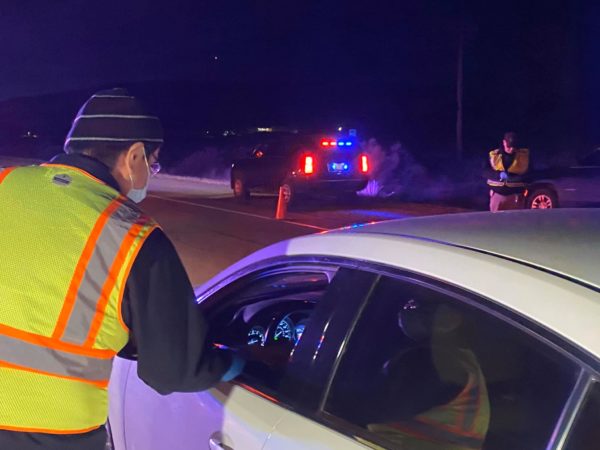
- Details
- By Native News Online Staff
ATLANTA — Community is a word that looms large culturally among American Indians and Alaska Natives. With the surge of Covid-19 cases in the United States once again, everyone should be taking precautions to protect the health and safety of one’s self, family, friends and community.
While facial mask wearing may be uncomfortable, new information from the Centers for Disease Control and Prevention (CDC) concludes wearing a mask is mutually beneficial to the wearer and those around the wearer.
Previously, the CDC advised people to wear masks because evidence indicated it prevents people infected with Covid-19 from spreading the deadly disease to others.
The CDC was influenced by a study led by Japanese researchers who simulated the spread of coronavirus particles on mannequin heads to determine how effective masks blocked transmission.
The study confirmed previous research that masks work when worn by an infected person who may spread the coronavirus by talking, coughing or sneezing. Masks block 60 percent of the virus released by the infected party.
The study also found the benefit when an uninfected person wearing a mask was near an infected party who was not wearing a mask. The results showed the amount inhaled by the uninfected person inhaled fell by 37 percent to 50 percent if that person wore a mask.
“Adopting universal masking policies can help avert future lockdowns, especially if combined with other non-pharmaceutical interventions such as social distancing, hand hygiene, and adequate ventilation,” the CDC said in its latest guidance.
In April 2020, the CDC said:
“The cloth face coverings recommended are not surgical masks or N-95 respirators. Those are critical supplies that must continue to be reserved for healthcare workers and other medical first responders, as recommended by current CDC guidance.”
While the CDC recommends that cloth face coverings can be homemade, it is important to know that not just any fabric is effective in allowing viral particles through the material.
According to Dr. Scott Segal, chair of anesthesiology at Wake Forest Baptist Health in Winston-Salem, N.C., “The best masks were constructed of two layers of heavyweight ‘quilters cotton’ with a thread count of at least 180, and had thicker and tighter weave.”
One rule of thumb: If you can see a substantial amount of light to shine through, it is probably ineffective because it will allow tiny viral particles through as well.
National Nurses United denounced the federal government’s recommendation that nurses wear bandannas and scarves if there are no medical masks and respirators to wear while testing and treating Covid-19 patients.
If you simply use a bandanna, make sure it is large enough to be folded at least twice and preferably three times, as the fabrics tend to be made of thin material.
The coronavirus can be spread between even causal interaction between individuals when speaking, coughing or sneezing—even if no one is showing symptoms of having the coronavirus.
Mask wearing does not replace social distancing of staying six feet apart or frequently hand washing for 20 seconds.
More Stories Like This
New Mexico Will Investigate Forced Sterilization of Native American WomenUSDA Expands Aid for Lost Farming Revenue Due to 2025 Policies
Two Feathers Native American Family Services Wins 2026 Irvine Leadership Award
Bill Would Give Federal Marshals Authority to Help Tribes Find Missing Children
Indian Health Service to Phase Out Mercury-Containing Dental Amalgam by 2027

